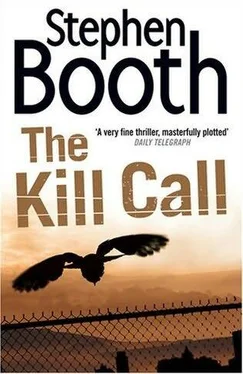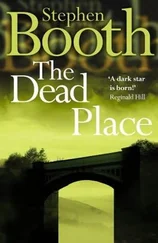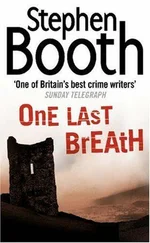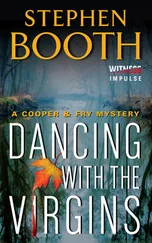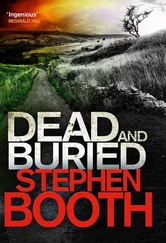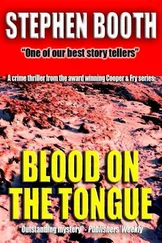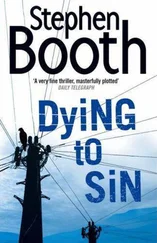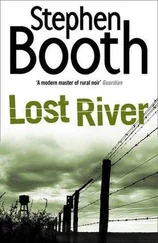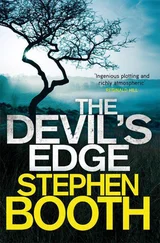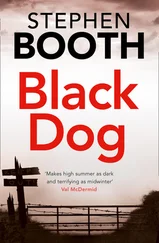Stephen Booth - The kill call
Здесь есть возможность читать онлайн «Stephen Booth - The kill call» — ознакомительный отрывок электронной книги совершенно бесплатно, а после прочтения отрывка купить полную версию. В некоторых случаях можно слушать аудио, скачать через торрент в формате fb2 и присутствует краткое содержание. Жанр: Полицейский детектив, на английском языке. Описание произведения, (предисловие) а так же отзывы посетителей доступны на портале библиотеки ЛибКат.
- Название:The kill call
- Автор:
- Жанр:
- Год:неизвестен
- ISBN:нет данных
- Рейтинг книги:4 / 5. Голосов: 1
-
Избранное:Добавить в избранное
- Отзывы:
-
Ваша оценка:
- 80
- 1
- 2
- 3
- 4
- 5
The kill call: краткое содержание, описание и аннотация
Предлагаем к чтению аннотацию, описание, краткое содержание или предисловие (зависит от того, что написал сам автор книги «The kill call»). Если вы не нашли необходимую информацию о книге — напишите в комментариях, мы постараемся отыскать её.
The kill call — читать онлайн ознакомительный отрывок
Ниже представлен текст книги, разбитый по страницам. Система сохранения места последней прочитанной страницы, позволяет с удобством читать онлайн бесплатно книгу «The kill call», без необходимости каждый раз заново искать на чём Вы остановились. Поставьте закладку, и сможете в любой момент перейти на страницу, на которой закончили чтение.
Интервал:
Закладка:
‘I think we need to get on to the A636,’ said Irvine.
‘Sure.’
A few minutes later, Cooper steered the Toyota down a bumpy lane, following directions taken from a local. Sheltered behind a line of dense conifers, the slaughterhouse was almost invisible to a casual passer-by. Even if he’d been a rambler out on a stroll, he might not have seen it. The approach was via a long, winding lane that would have been difficult to find in itself without directions. At the end of the track was a collection of grubby stone buildings, devoid of any signs to indicate what they were. In the yard stood a row of steel-sided wagons that had brought animals for slaughter.
But once you reached it, and got out of the car, there was no mistaking what this place was. A distinctive smell filled the air. Blood, urine and dead flesh.
Cooper was no vegetarian. He liked a good steak as much as the next man. But the smell of meat in large quantities was cloying and sickly. It made him think of an old-fashioned butcher’s shop his mother used to take him to in town when he was a child. There had always been joints of meat hung all around the shop, and some had probably been there for days. It was one of those childhood impressions that could be brought back instantly by a smell like this.
The butcher’s was long gone now, of course. If his mother was still alive, she would be buying her meat shrink-wrapped from a chill cabinet at the supermarket, just like everyone else. That, or she would have found her own private source, which was still possible if you knew where to ask.
‘I hope we get masks,’ said Irvine. ‘I don’t think I can hold my breath until we get back to the car.’
‘You’ll get used to it.’
But this was more than just the smell of meat. There was an underlying odour of putrefaction that no amount of cleaning and disinfectant could alleviate. It was obvious to anyone with a functioning sense of smell. With one sniff, you could tell whether meat was fresh or had gone off.
Cooper glanced around the site. Somewhere, there would be skips where the waste and offal were discarded to await incineration. He pictured hoppers full of skins from butchered animals, drains where rivulets of blood soaked away.
There used to be a small, privately owned abattoir in Lowbridge, near Edendale, which he’d visited once with Diane Fry. But it had gone out of business, like many local operations, unable to bear the cost of regulations and new equipment. Now Hawleys was the sort of place that animals went to, travelling longer distances to meet their fate.
‘Slaughterhouses like ours aren’t doing anything wrong or inhumane, you know,’ said Melvyn Hawley, who introduced himself as one of the sons in C. J. Hawley and Sons. ‘These animal rights people are talking out of their arses.’
‘Really?’
‘Oh, there might be a bit of ill treatment in the industry, here and there. But the level of welfare abuse is nothing compared to what would go on if there was no abattoir trade. Abattoirs like ours are regulated and inspected to the nth degree. If you were to take away that commercial structure, and the professionalism that goes with it, you would lose control of the whole process.’
‘I suppose so.’
Melvyn Hawley was a tall, thin man, and so pale that he looked as though he’d never eaten meat in his life. Did working in a place like this put you off? If he was one of the sons, Hawley must have grown up with the idea of what went on in an abattoir. Killing as a means of earning a living. It was enough to make anyone a little awkward in normal company.
When they arrived, Cooper and Irvine had been taken into a small office. Bright, white-painted walls, the smell of disinfectant. Just enough room for three or four chairs, and a row of filing cabinets.
‘Besides,’ said Hawley, eyeing Cooper cautiously, ‘when it comes to the slaughter of horses, we’re just clearing up the mess left by the racing industry. That’s what I always say.’
‘How is that, sir?’
‘Well, they have massive breeding programmes, you know. Far too many horses are produced, and only the best survive. It’s a dirty little secret the racing industry would rather no one knew. I dare say horse lovers fondly imagine that all those unwanted racehorses live out their days grazing happily in some sunlit meadow. Some nice, kind person is looking after them somewhere in their old age? Yeah, right.’ He laughed bitterly. ‘Well, that nice person would need to have very deep pockets. It costs thousands to feed and look after just one retired race horse.’
‘So you’re saying that the racing industry has to cut its losses and make something on the carcasses?’
‘That’s it. Horses can live to more than thirty years on average, but most are killed before their fifth birthday. There are a few specialist slaughterhouses around the country, like us, who deal with the surplus.’
‘What happens to the carcasses?’ asked Irvine.
‘After the horses are slaughtered, they’re shipped abroad in quarters. Overseas buyers bone them out and cut them up. Some of the meat goes into pet food, but there’s quite a demand for human consumption, you know.’
‘And what size of surplus are we talking about?’
‘Up to ten thousand horses a year. Mainly to France.’
Cooper watched Hawley carefully as he answered Irvine’s questions. ‘I take it you’re aware of the outbreak of trichinosis, sir?’ he said.
Hawley winced visibly. He couldn’t have gone any paler, but the pain was clear in his face.
‘Have they traced the origin of the meat yet?’ he asked.
‘Not so far as I’m aware.’
‘It will have come in from overseas. Someone has imported it illegally, you can bet.’
‘Have you been affected by the investigation?’
‘Have we! They’ve been all over this place with a microscope. We got a clean bill of health.’
‘You must have been relieved,’ said Cooper.
‘Oh, we knew we were clean. The trouble is, packaging indicates the location of slaughter, not the source of the animal. We had to produce documentation on where all our horses came from. It’s a real hassle. But we’re properly regulated in this country, like I said. There’s very little enforcement of the regulations in some other EU member states. Everyone knows that.’
Hawley led them into a viewing area overlooking the slaughter line. Blood could be seen seeping under the edges of plastic doors. Four men were working in the butchering room, their white overalls spattered with blood. Above them, three horse carcasses hung from metal shackles fastened to their hind legs. Their hooves had been cut off, and their heads removed. One man was using a set of knives to skin a dead animal.
‘I’m afraid we can’t allow anyone into the killing room,’ said Hawley. ‘It’s too dangerous.’
‘You still use live bullets?’
‘Yes. It’s quicker and more efficient — provided you have an experienced operative.’
Outside were holding pens, full of more horses waiting their turn. As they walked through the pens, a gunshot went off. Two young horses jumped and began biting each other’s necks.
Hawley looked from Cooper to Irvine. The younger detective had gone pale, almost as pale as Hawley himself. He gulped the fresh air eagerly.
‘I know it’s a tough fact to face,’ said Hawley, sounding a little more apologetic. ‘But there are thousands of British thoroughbreds that are too old, too slow, or just not good enough jumpers. A lot of them never even make it to the starting gate.’
Cooper nodded. For the unwanted, the end was pretty brutal. If not a bullet, then a steel bolt into the side of the brain. Then their butchered carcasses loaded on to refrigerated lorries and driven to France.
Читать дальшеИнтервал:
Закладка:
Похожие книги на «The kill call»
Представляем Вашему вниманию похожие книги на «The kill call» списком для выбора. Мы отобрали схожую по названию и смыслу литературу в надежде предоставить читателям больше вариантов отыскать новые, интересные, ещё непрочитанные произведения.
Обсуждение, отзывы о книге «The kill call» и просто собственные мнения читателей. Оставьте ваши комментарии, напишите, что Вы думаете о произведении, его смысле или главных героях. Укажите что конкретно понравилось, а что нет, и почему Вы так считаете.
